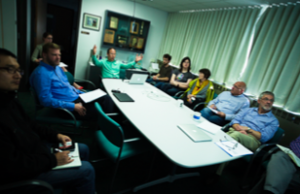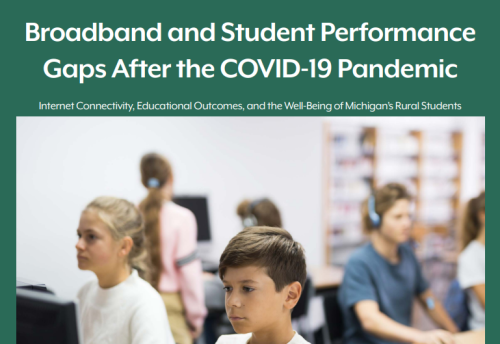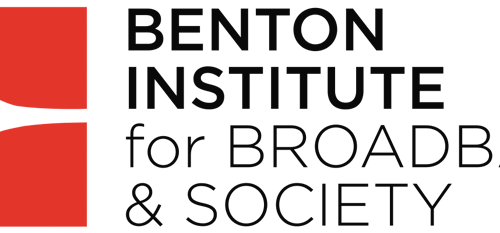Is there any place for media regulation in the era of the Internet? And if the answer is ‘yes’ – what shape should it have? Is there any partisan political influence on the Federal Communication Commission (FCC), an independent agency? And if ‘yes’ – what sort of influence? Each of these questions stood at the core of two separate seminars that took place today at the Quello Center. The first was a VIPP seminar, conducted by Prof. Steve Wildman and focused on the requirements for new regulation following the tremendous changes in media technologies as well as in media consumption. The other was a presentation of Prof. Adam Candeub from MSU’s School of Law regarding a wide-scope quantitative research project, entitled “Agency independence and partisan politics” which analyzed 7930 FCC orders that had been published over 30 years.
At the first thought, there is no direct linkage between these two seminars’ topics. However, I found that they are tightly albeit unintentionally related to each other. Prof. Candeub demonstrated how the “independent” FCC is not so independent, if at all. The huge dataset that he and his colleagues collected point to the fact that there is a clear connection between the FCC’s decisions and the political identities of the sitting presidents, the Commission’s chairs, and the commissioners, particularly in relation to the partisan makeup of Congress. Prof. Wildman argued that the new structure of the media industry (mainly the video industry) – the move to server-based distribution systems in particular – must lead to significant changes in traditional media regulations (in the US implemented by the FCC). He focused mainly on required changes in access, ownership, and content regulations. However, after listening to the second seminar, I figured out that such changes in regulations might demand changes in the regulatory agencies as well, regarding their structures, professionalism, political affinity etc.
It is well known that regulatory changes always follow changes in the technological, economic and consumption environments. When we face colossal changes in these environments, as Prof. Wildman demonstrated, it is fair to expect such changes in the regulatory environment as well. Is it possible? Prof. Candeub’s research implies that politics has such a dominant role that (I add) it seems that the answer is not necessarily a response to the logic of the digital age, and might well be ‘no’.
Avshalom Ginosar, PhD
Communication Department
The Academic College of Yezreel Valley
Visiting Scholar
The Quello Center
The Department of Media & Information
The College of Communication Art & Science
Michigan State University
ginosar@msu.edu




